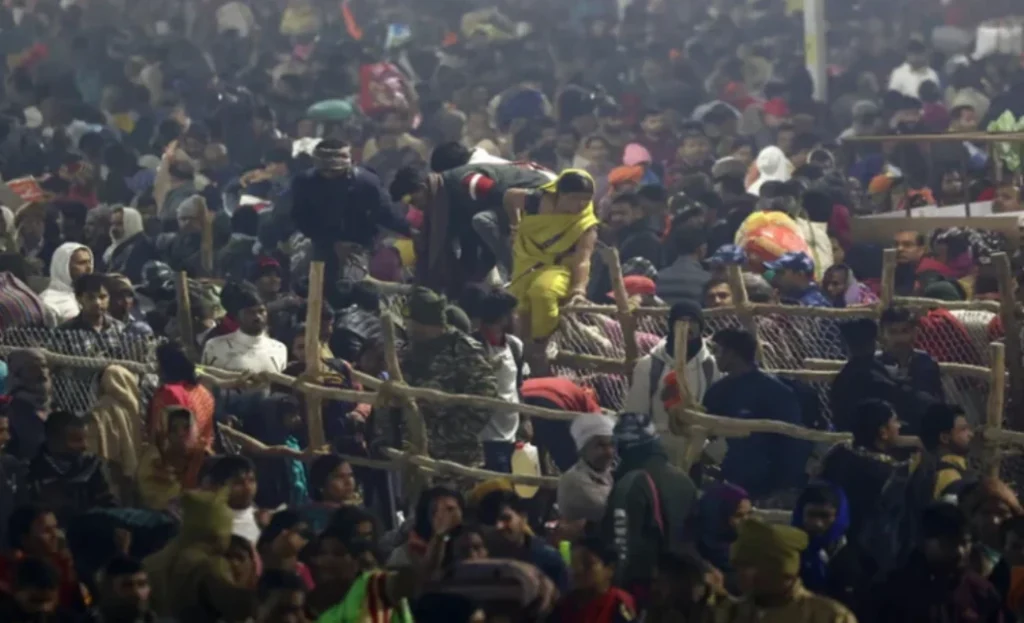A tragic stampede at the Mansa Devi temple in Haridwar, Uttarakhand, claimed the lives of at least six people and left over ten others injured on Sunday. The incident occurred on a stairway leading to the revered Hindu temple, situated on the banks of the sacred Ganges River, as thousands of pilgrims flocked to offer prayers.
According to Parmendra Dobhal, a senior city police official, the victims were crushed in a sudden crowd surge, which quickly turned chaotic and fatal. “Six dead and more than 10 injured are admitted to the hospital,” he told AFP.
Uttarakhand Chief Minister Pushkar Singh Dhami confirmed that emergency response teams were promptly dispatched to the scene. “I am constantly in touch with the local administration regarding this matter and continuous monitoring of the situation is being done,” he stated. Rescue operations are ongoing, and authorities are working to control the crowd and ensure the safety of those still present at the temple complex.
The Mansa Devi temple, perched atop the Bilwa Parvat hill, is one of the most visited shrines in northern India, especially during Hindu festivals and holy days. Devotees believe that praying to Goddess Mansa Devi fulfills their wishes, drawing enormous crowds year-round.
This incident adds to a troubling pattern of deadly crowd crushes at religious events in India. Just last month, three people died in a stampede during a Hindu festival in Odisha. In May, six people lost their lives in Goa during a fire-walking ritual. In January, at least 30 people were killed during a predawn surge at the Kumbh Mela in Prayagraj, one of the largest religious gatherings in the world.
Experts have repeatedly called for better crowd management and stricter safety measures at large gatherings. Despite these warnings, overcrowding and poor infrastructure continue to pose significant risks to worshippers.
As families mourn the loss of their loved ones in Haridwar, questions are once again being raised about India’s preparedness to handle massive religious congregations, and the urgent need for stronger protocols to prevent such tragedies in the future.

